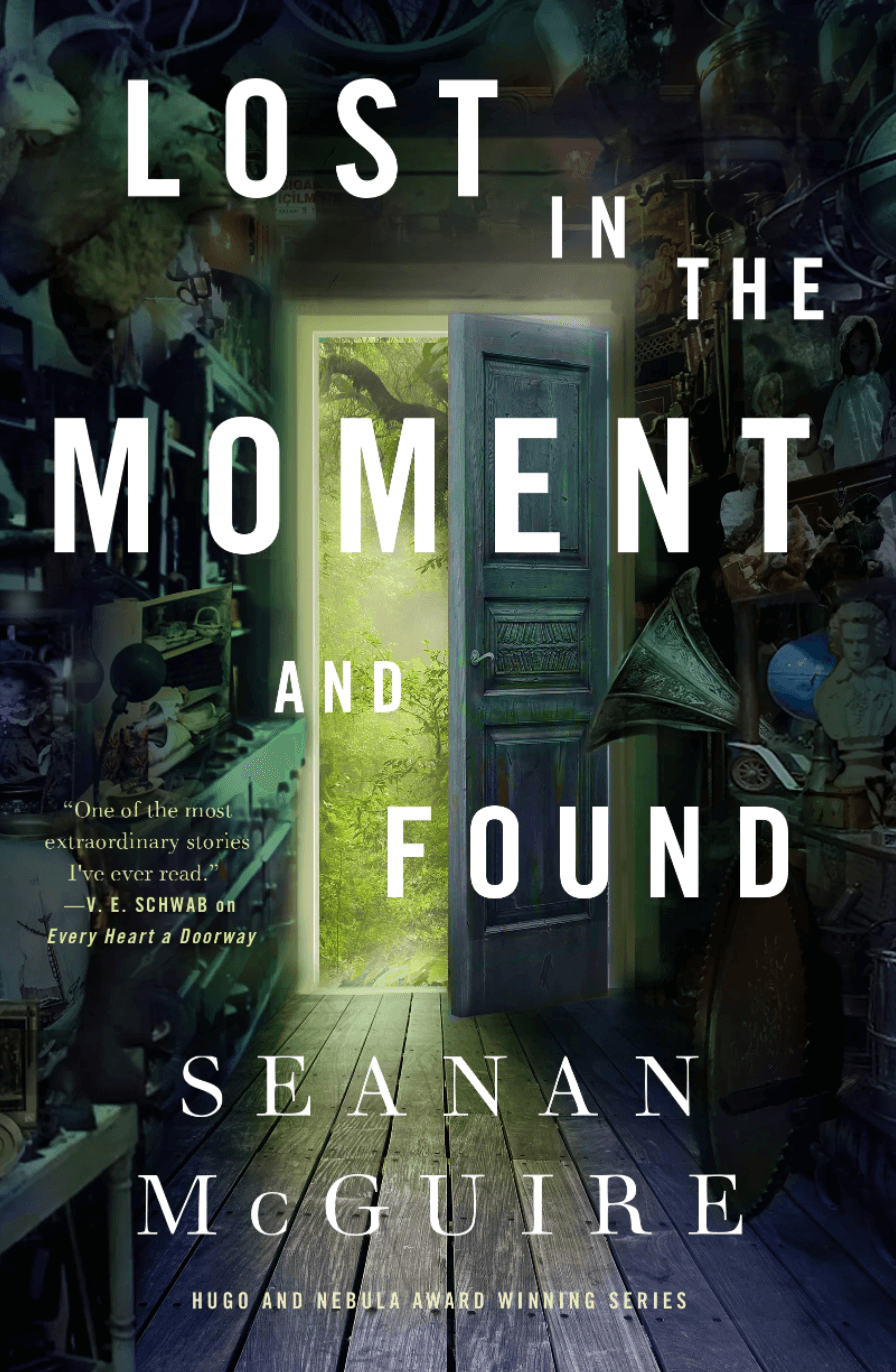The first thing Antoinette Ricci ever lost was her father…
Seanan McGuire released a new installment in the Wayward Children series in January and I…hadn’t yet read the one that came before. So, let’s take care of another review in my list of Books I Really Should Have Read Ages Ago.
Antsy’s life from age five years old and onward is a litany of things she’s lost. First her father, from an out-of-nowhere medical event. From that she lost her trust that the world was a good place. Then her sense of security in her own home. And finally her ability to believe that her mother’s love would protect her from the monster she invited into their lives.
Heads up everyone, this book centers around a terrifying situation. And unfortunately it’s one that the author is intimately familiar with. McGuire lets everyone know in the forward what Antsy will be dealing with, with the reassurance that Antsy will run away before anything physical happens. That doesn’t take away from the creeping horror she conveys at being a helpless seven-year-old sharing a house with a grown-up who knows how to manipulate, how to reframe, how to lie to make sure his intended victim thinks no one will believe her.
(I did think it was interesting that McGuire makes it clear Antsy’s mother would have believed her, would of course have understood that her still-grieving daughter wasn’t capable of making up something so horrible about the man she’d known for less than two years. And that just highlights how insidious grooming can be. Antsy’s stepfather didn’t set her mother against her, he just convinced her he had. Which, to a vulnerable child, amounts to the same thing.)
Like many of the Wayward Children, Antsy has so much of a need to escape that she runs away and through a door almost too fast to notice the hastily scrawled words above, Be Sure. The entrance to ANTHONY & SONS, TRINKETS AND TREASURES whisks her away to the world where lost things go, a nexus for Doors, and a thrift store to end all thrift stores.
…Antsy gazed in awestruck wonder at the shop she had stepped into. It was a glorious cacophony of things, every shelf piled high with books and antique vases and dishes and chests overflowing with jewels or coins from countries she didn’t recognize or tiny, polished bones, as white as chalk.
The idea of getting to wander through a store piled with endless treasures – and meeting the impatient talking magpie Hudson and even more impatient elderly shopwoman Vineta – is almost enough to overcome Antsy’s panic that the Door to her home world is gone, leaving her no way to get back to her mother. (Not that she would have necessarily wanted to, but not having the option is a great big deal). What does win over Antsy to her new home is finding out that she has a talent for stumbling across Doors in the shop, many of which lead to wonderous marketplaces.
I do so love a Fantasy Market, and the first one Antsy accompanies Vineta into is filled with treasures and sweets and it’s thronging with people who are also cats, and one of them cheerfully helps Antsy shop and makes sure no one takes advantage and it’s all magical. Antsy falls asleep that night in a bedroom of her own, in a shop that will helpfully provide her everything she needs, right down to a toothbrush, and it’s just the start of a new life working in the store and traveling to new worlds every day…
…and since this is the Wayward Children series, you know this happiness isn’t going to last. One way or another, it’s destined to stop.

Many of the Wayward Children stories end with reaching adulthood, or at least getting to the part where they have to put away comforting childhood fantasies. Antsy already had to do that the moment she threw her favorite dolls and a jar of peanut butter into a backpack and fled into the night, so the story revolves around another important Wayward Children theme: price. Nothing is free, so what does the freedom of an infinite number of worlds cost? Is it worth the cost, and isn’t it a little unfair ask someone to make that decision when they’re still young enough to sometimes forget that too much candy will give you a stomachache? (This feels like a very pointed message to people who hear about a child being abused and ask “Why didn’t they tell someone?” It’s equally unfair to make a child choose between submission and possible harm to their families, and then expect they’re going to understand the consequences the same way an adult would.)
Like all of the books in this series, you have to brace yourself for some pain going into it. The Door labeled Be Sure in this book also attracts children in similar situations to Antsy’s, so even though Antsy ran from the danger we’re all still going to revisit the trauma over and over again. It didn’t stop this from being an engrossing story that I read all the way through in less than a day. The changes to Antsy in this book lead directly to the next one in the series; we can hope that, like a few of the other Wayward Children, her story takes a happier turn.